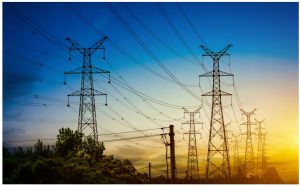By Cynthia Ezekwe
A practical solutions finding non-profit think-tank wants a radical departure from Nigeria’s failed decades’ old approach to seeking solutions to the country’s electricity supply crisis by the new government of President-elect Bola Ahmed Tinubu, who was sworn in Monday 29 May, 2023 as president of the Federal Republic of Nigeria.
In a policy memo titled, “Addressing Nigeria’s Lingering Power Challenge”, Agora Policy, the Abuja-based organisation, said the new government should adopt a paradigm shift from looking at solutions to the country’s power supply crisis in terms of installed capacity and, instead, focus on ‘ electricity delivered’
Highlighting policies the incoming administration can adopt to resolve the issues affecting the Nigerian power sector, Agora policy stressed that adequate and reliable electricity supply to individual welfare, economic growth and overall national development cannot be over-emphasised, but lamented that the reforms initiated by the President Olusegun Obasanjo administration, leading to the privatisation of the power sector in 2014, are yet to yield the desired results.
Quoting World Bank data, the report disclosed that Nigeria has the largest energy access deficit in the world, with 85 million Nigerians, representing 43 per cent of the country’s population, having no access to grid electricity.
The World Bank estimates that the lack of reliable power costs the Nigerian economy over $26.2 billion (N10.1 trillion) , which is equivalent to about two per cent of Nigeria’s GDP.

“This is an important paradigm shift with positive impact for government, as having such policy mind-set changes the prioritisation and allocation of public and private resources to projects, interventions and initiatives across the electricity value chain that will increase the energy output, availability, reliability and quality of electricity delivered to end-users,” the report noted.
The policy advised the new administration to prioritise solving the interface issues and challenges across the entire power sector value chain, building on the current initiatives and projects of the Muhammadu Buhari government, with a strategic objective to optimise the value-for-money outcomes of a number of these projects, initiatives and interventions.
The report recommends that the President Bola Tinubu led administration continue the implementation of the power sector programmes, initiatives and interventions carried out by the Buhari administration.
It pointed out that one of the programmes is the National Mass Metering Programme (NMMP), which is an initiative aimed at closing the metering gap in the country, stating that the optimisation of such programmes set up by the preceding administration would ensure value for money.
Agora Policy also suggests that the new government develop a new national electricity policy framework and amend the Electric Power Sector Reform Act (EPSRA).
According to the report, the EPSRA was signed into law in 2005 under Obasanjo administration, and has remained unchanged despite the urgent need for more reforms in the power sector.
“The incoming administration must develop a national electricity policy that reflects the electricity aspirations of both the Federal Government and the states in line with the new provisions of the Constitution,” the policy memo noted.
It advised the incoming administration to fast-track the passage of a new electricity act by the 10th National Assembly to reflect the new electricity framework as envisaged by the constitution and give states the unfettered rights to develop the electricity sector, including creating electricity regulatory structures and state electricity markets within their territorial boundaries.
It emphasised that the new electricity law should strengthen the national regulatory framework and the powers of the Nigerian Electricity Regulatory Commission (NERC) as the electricity regulator; improve and strengthen existing electricity market structures; and in general, reduce government’s participation and allow more private investments in the power sector by opening up the sector to greater market competition.
Agora Policy further outlined that the incoming administration establish a standing inter-ministerial energy committee, which will be chaired by Kashim Shettima, the vice president, to strengthen various segments of the power sector value chain.
The organisation further advised the incoming government to empower states to develop sub-national electricity markets, to help them attract needed investments into the electricity market
The policy memo also encouraged the new administration to improve the energy mix and address energy transition issues, adding that the government must continue the implementation of the Energy Transition Plan (ETP), to achieve a faster transition to carbon neutrality by 2060.
“There needs to be focused investments at targeting new investments in additional power generation into renewable energy power generation sources such as solar and hydropower energy sources,” the memo noted.
Agora Policy report further recommends that the new administration consider re-privatising some of the DisCos that have been taken over by lenders due to default by core investors in meeting the acquisition loan repayment terms to the lenders, or under some form of administration by the NERC and the CBN.
Additionally, the Agora policy report mentioned the need for the incoming government to improve gas supply to the power sector, noting that Nigeria’s energy mix is largely driven by natural gas.
According to the memo, the issues around gas supply to the power sector are also anchored around sustainable investments in natural gas exploration, development and production.
It however pointed out that improving gas supply to the power sector will require addressing the bottlenecks in the gas–to-power value chain, which includes insufficient investments in gas-to-power infrastructure, and gas-to-power pricing and timely payments to gas suppliers for contracted gas delivered to power plants.
“Equally important is robust security and protection of oil and gas infrastructure across the country. Thus, any “Nigeria First” natural gas utilisation policy must seek to address these upstream and downstream issues in the oil and gas sector,” Agora Policy added.







